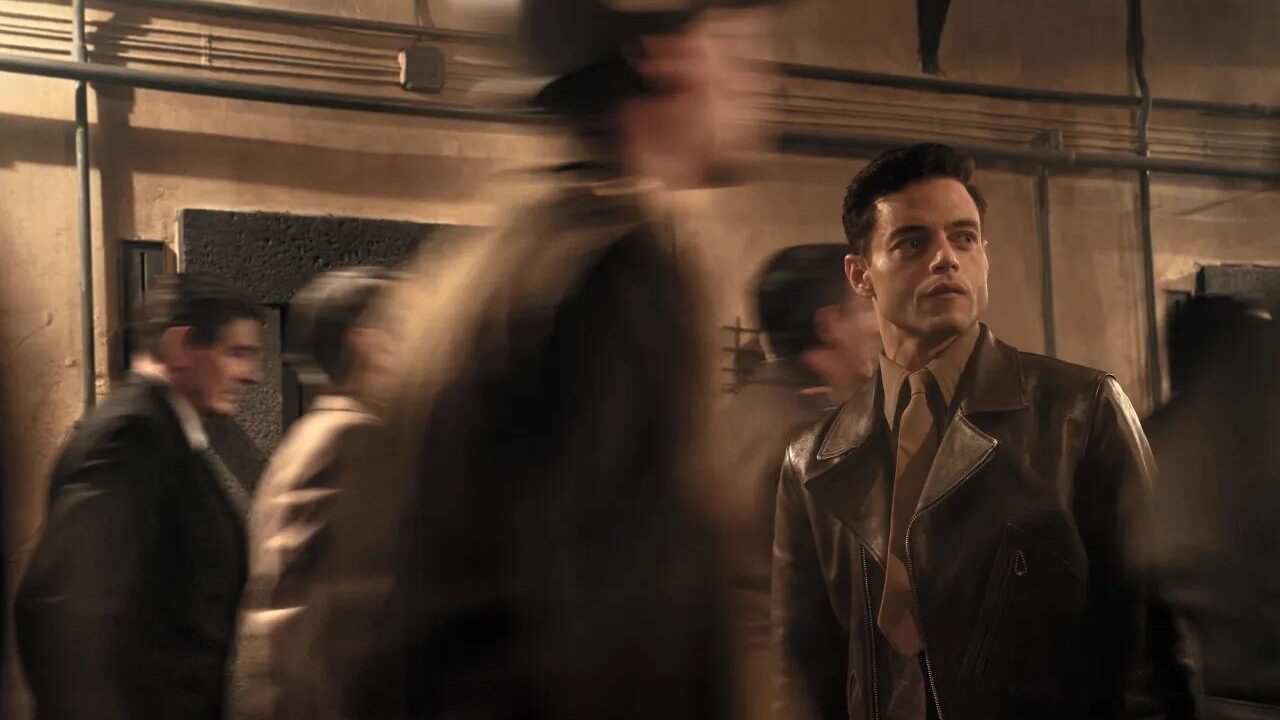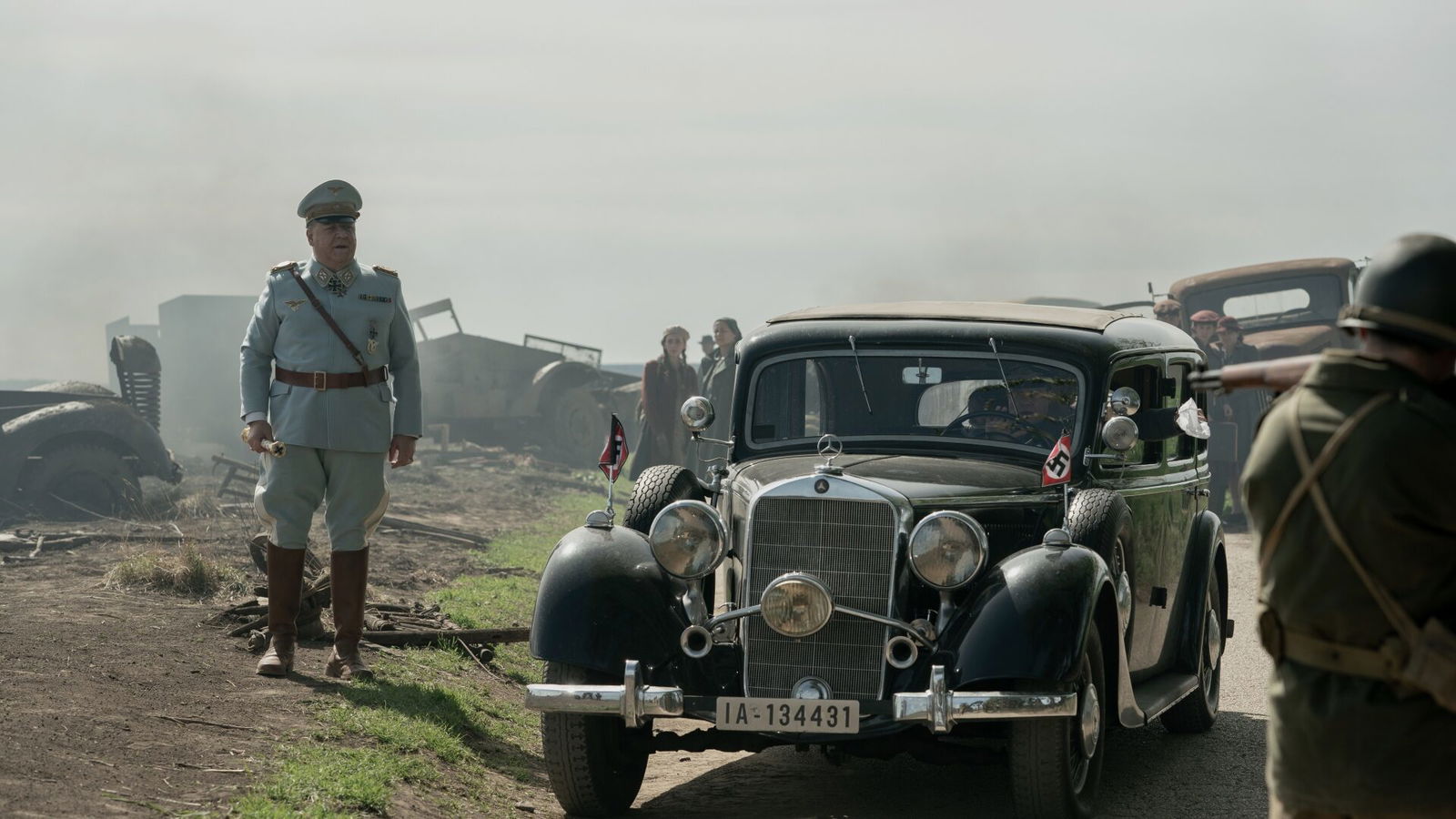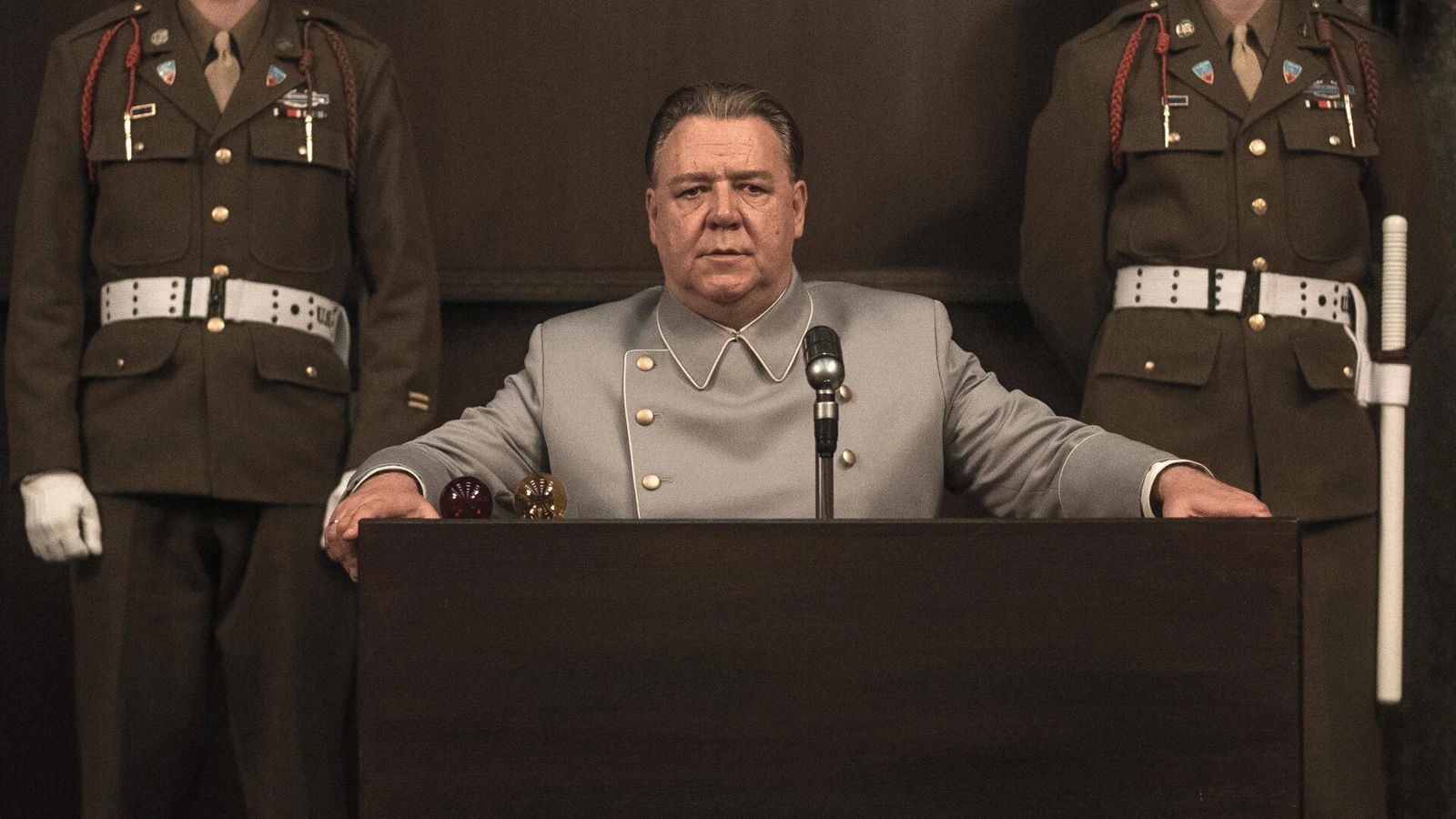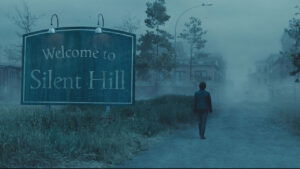This historical major motion picture, Nuremberg, showed me how World War II in Europe never truly ended on May 8th, 1945. Based on Jack El-Hai’s 2013 non-fiction book The Nazi and the Psychiatrist, Nuremberg depicts the fascinating events that led to the trial of the century and is enormously elevated by powerhouse performances. Rami Malek and Russell Crowe duke it out in the psychological ring, throwing blows and connecting in the way Rocky Balboa and Apollo Creed respected one another as boxers in the Rocky films.
The story begins in 1945. Hitler is dead, and the Second World War is drawing to a close. Several figures within the Nazi high command have been apprehended by the Allies—among them the eerily charismatic Hermann Göring (Crowe). US Lt. Colonel Douglas Kelley (Malek), an army psychiatrist, is called in to evaluate the Nazi captives. He sees his directive as an opportunity to psychologically define evil, helping to ensure that such atrocities are never repeated while providing him with material for a surefire bestseller.
US Supreme Court justice Robert H. Jackson (Michael Shannon), meanwhile, is charged with the task of forming an international tribunal, believing that even the world’s most notorious criminals deserve a fair trial. The challenge, as Jackson sees it, is to get the seemingly unflappable Göring to reveal his true nature in public. To do that, Jackson and Kelley will need to work together to earn Göring’s trust—and appeal to his narcissism.

None of the actors faltered in Nuremberg. Malek continued to be as charming and charismatic as he attempted to solve the mind of Crowe’s Göring. Kelley’s conversations with Sergeant Howie Triest (Leo Woodall) were like two comrades fighting a battle together. Even Kelley’s team-up with Jackson, Malek and Shannon’s dialogue flowed seamlessly. Their conversations worked impressively in a way only these two actors could deliver these impactful lines. John Slattery’s (Captain America: Civil War) Colonel Burton C. Andrus played the comic relief role so well—not sticking out like a sore thumb comedy. Rather, Slattery delivered snippy responses for an authoritative figure who tried to run the Nuremberg prison in tip-top shape.
Crowe’s performance as Adolf Hitler’s second-in-command was solid, with dialogue and monologues reminiscent of Maximus in Gladiator. I thought I would dislike Crowe’s accent in this film, especially after hearing his rough Russian accent in Kraven the Hunter—not as strange as his Greek accent as Zeus in Thor: Love and Thunder. His verbal bouts and witty one-liners, paired with Crowe’s puppy-eyed faces, transformed a war criminal into a sympathetic villain. This is something very few could do as successfully as Crowe’s Göring.
When Göring says, “I will not hang,” I got a little curious about how he would beat the tribunal. One of the best line deliveries from Crowe is when Göring asks Kelley, “In 15 years, how would you describe us? Will you even think of us as human?” This was a great line that would echo in our eternal history. The commentary on whether to directly attack antisemitic ideologies or not continues to stir debates to this day, especially in democratic countries that promote free speech.
“Aside from the good acting and shock value, Nuremberg simply adapts the facts.”
Writer-director James Vanderbilt’s strength in Nuremberg was in its shock value. A very thorough video detailed how the Jewish captives were treated like garbage in the Nazi-operated concentration camps. I thought the video would be quick and not show too much raw footage or shy away from the inhumane aspects. No, Vanderbilt drove home the point—not censoring the sterilization tactics of a specific religious group. I took a moment to stare around the theatre audience at TIFF 2025, and I saw faces filled with sadness and disgust. Rightfully so.
Vanderbilt did his homework because the film also depicts the then-current Pope, who signed the Reichskonkordat in 1933—a treaty which ultimately recognized the Nazi German regime. Without sugarcoating it, the Pope made this controversial decision, which very likely ignited Hitler and his Nazi regime to conquer parts of Europe lawfully. This led to one of the best lines of Nuremberg, “Did you just blackmail the Pope?” Jackson used this 1933 piece of information to guilt-trip the Pope to cater to his demands, a wild move even for someone who is a US Supreme Court justice.
As someone who finds a 3 or 4-hour runtime unnecessary and torturous to its audience, Nuremberg’s 148-minute runtime felt shorter than it did. The various happenings and alerts going off across the prison kept me gripped to my seat, and wanting to know how the American Supreme Court justice would prosecute Göring and the remaining Nazi high command members. Vanderbilt balanced the first and second acts being a crime drama, then it evolves into a high-stakes courtroom drama.

The double-edged sword of this film is the forced romance between Kelley and the journalist Lila. On the one hand, these flirting scenes were succinct and served an important purpose for the historical context. But on the other hand, this whole plot felt poorly written. At one point, it looked like Lila showed up conveniently to move the plot along. Arguably, this was worse than the part Albert Einstein magically appears to see Julius Robert Oppenheimer in Oppenheimer.
While this was one of the more compelling history lessons, there was nothing particularly special about it. Aside from the good acting and shock value, Nuremberg simply adapts the facts. This was a film made for history buffs, while also being an impactful film made in our current times—where wars keep popping up around the world. Aside from case law education, this was a straightforward history/war film for those looking for a detailed account of the Nuremberg trials in 1945.





